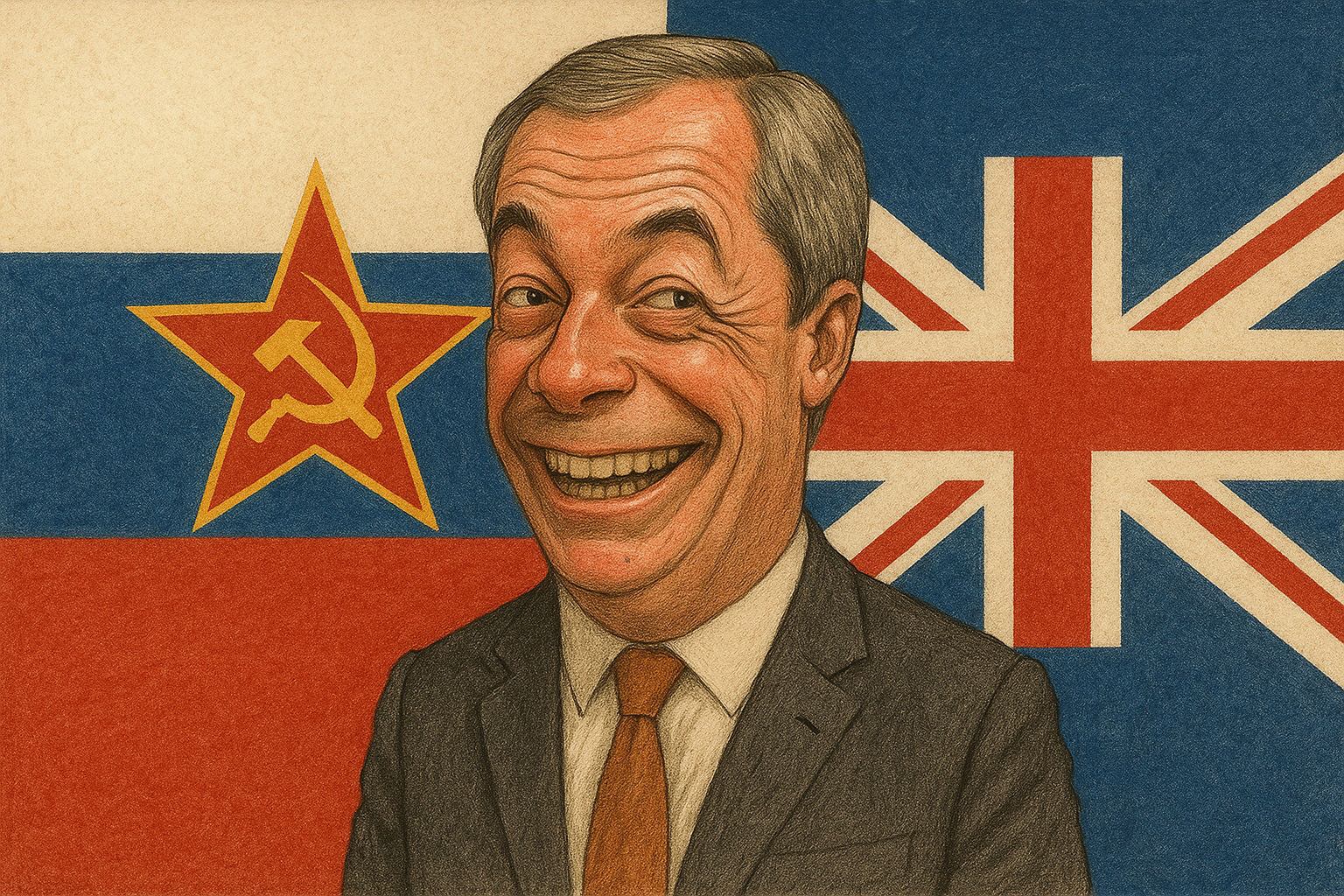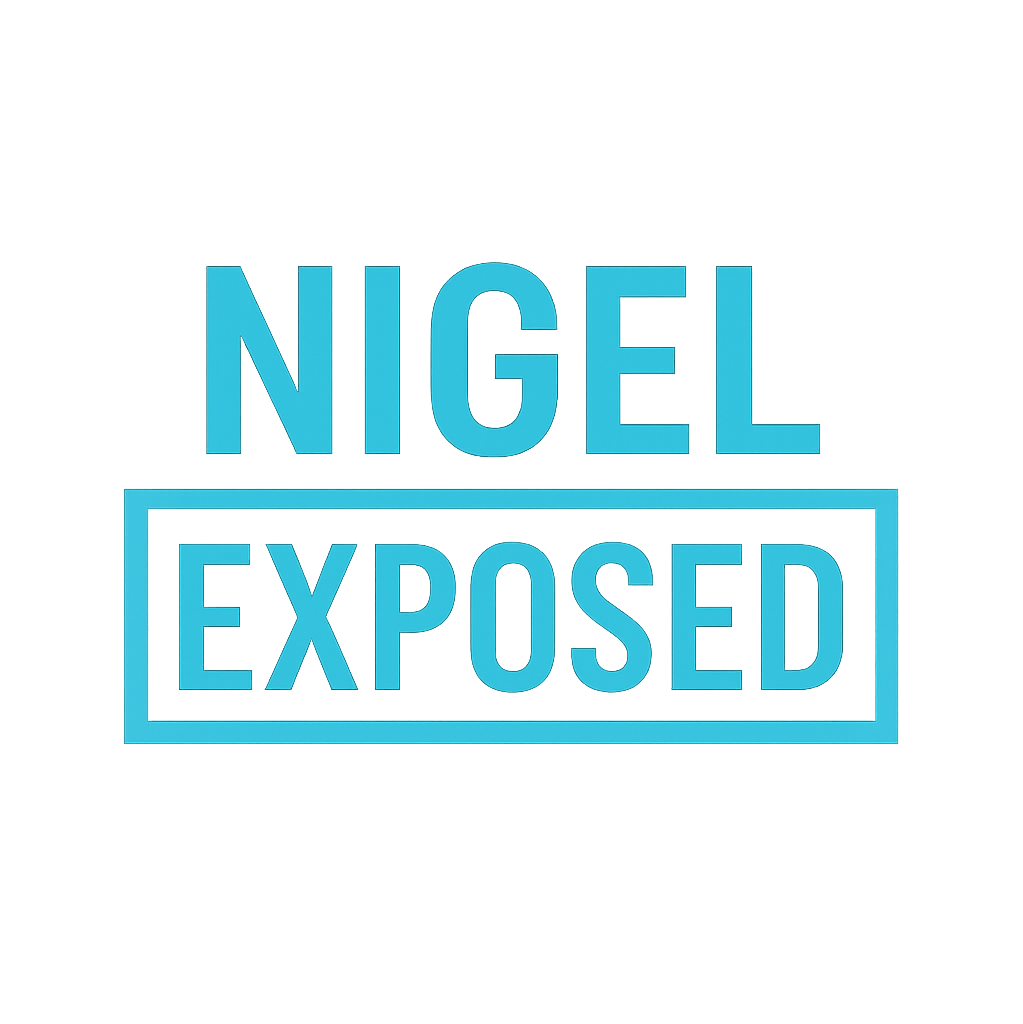
NNigel Farage and Russia
Overview
Nigel Farage’s political career has repeatedly intersected with debates about Russia, Vladimir Putin, and UK foreign policy. His public statements on Putin, NATO, and sanctions have drawn widespread criticism. While Farage denies being sympathetic to the Kremlin, his remarks have often echoed narratives promoted by Russian state media.
Praise for Vladimir Putin
Farage has made a number of remarks that appeared to express admiration for Vladimir Putin.
- In 2014, he described Putin as the world leader he most admired “as an operator.”
- That same year, he said Russia’s annexation of Crimea was “entirely understandable.”
- After Russia’s full-scale invasion of Ukraine in 2022, he attempted to distance himself from earlier comments, calling Putin “the devil we know.”
👉Fact-check: Farage denies praising Putin despite 2014 comments
NATO “provoked” Russia claim
Farage has argued repeatedly that NATO and EU expansion “provoked” Russia into aggression, framing Western policy as partly responsible for the war in Ukraine.
- This line dates back to his 2014 commentary on Crimea and has been repeated in interviews since 2022.
- Experts highlight that NATO is a defensive alliance, membership is voluntary, and Russia’s aggression predates many recent NATO expansions.
👉 Fact-check: Farage claims NATO provoked Russia (Verdict: Misleading)
Sanctions on Russia
Farage has also claimed that sanctions against Russia “don’t work,” arguing they damage British households more than Moscow.
- In 2022–2023, he suggested Russia simply “found other buyers” for its energy exports.
- Independent analysis shows sanctions cut Russia’s oil and gas revenues, restricted access to Western technology, and reduced long-term economic growth.
👉 Fact-check: Farage claims sanctions on Russia don’t work
Russian Media Platforms
Farage has frequently appeared on Russian state-owned outlets such as RT (Russia Today).
- On these platforms, he criticised the EU, NATO, and mainstream British politics.
- Critics argue these appearances legitimised Kremlin propaganda. Farage insists he was simply engaging with international audiences.
Russia and Brexit
Farage has denied receiving Russian funding, but his role in the Brexit campaign has been linked to broader concerns about foreign interference.
- Russian-backed disinformation campaigns promoted anti-EU narratives in 2016.
- Russian media regularly amplified Farage’s speeches and interviews.
- UK parliamentary inquiries noted the risk of Russian influence, though no direct financial ties were proven.
Sources
- The Guardian – “Nigel Farage: I admire Vladimir Putin” (2014)
- The Guardian – “I have more respect for Putin than for ‘kids’ who run Britain” (2014)
- Reuters – Farage says the West/NATO/EU “provoked” Putin (2024)
- PA Media Fact Check – Lord Robertson did not back Farage’s ‘provoked’ claim (2024)
- Chatham House – Impact of sanctions on Russia’s military industry (2025)
- IMF – The sanctions weapon (effects on Russia) (2022)
- The Guardian – Farage’s appearances on Russia Today/RT (2014)
- European Parliament (EPRS) – Foreign interference in EU democratic processes (2022, PDF)
Conclusion
Nigel Farage’s record on Russia has been marked by controversy — from remarks admiring Putin to claims that NATO provoked aggression and sanctions failed. His critics argue these positions echo Kremlin narratives, while Farage presents them as candid criticisms of Western policy.
Conclusion
Nigel Farage’s record on Russia has been marked by controversy — from remarks admiring Putin to claims that NATO provoked aggression and sanctions failed. His critics argue these positions echo Kremlin narratives, while Farage presents them as candid criticisms of Western policy.
👉 See other topics in our Nigel Farage Controversies index
👉 Explore more in the Fact-Checking Hub
Disclaimer
Farage Exposed is an independent, non-commercial project created for informational and public interest purposes. All content is based on publicly available sources, including verified news reporting, parliamentary records, and expert investigations. While we strive for accuracy, readers are encouraged to verify information and apply critical thinking. This site does not claim affiliation with or endorsement by any individuals or organisations mentioned.
